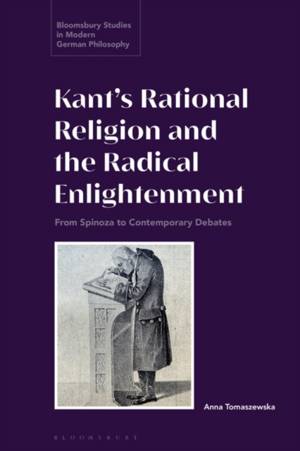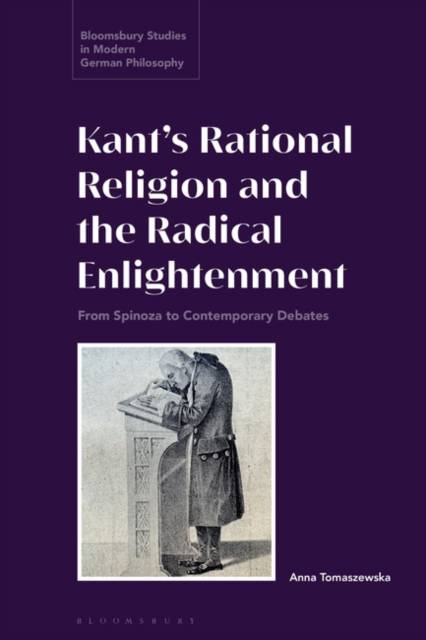
Bedankt voor het vertrouwen het afgelopen jaar! Om jou te bedanken bieden we GRATIS verzending (in België) aan op alles gedurende de hele maand januari.
- Afhalen na 1 uur in een winkel met voorraad
- In januari gratis thuislevering in België
- Ruim aanbod met 7 miljoen producten
Bedankt voor het vertrouwen het afgelopen jaar! Om jou te bedanken bieden we GRATIS verzending (in België) aan op alles gedurende de hele maand januari.
- Afhalen na 1 uur in een winkel met voorraad
- In januari gratis thuislevering in België
- Ruim aanbod met 7 miljoen producten
Zoeken
Kant's Rational Religion and the Radical Enlightenment
From Spinoza to Contemporary Debates
Anna Tomaszewska
€ 137,95
+ 275 punten
Uitvoering
Omschrijving
Kant's defence of religion and attempts to reconcile faith with reason position him as a moderate Enlightenment thinker in existing scholarship. Challenging this view and reconceptualising Kant's religion along rationalist lines, Anna Tomaszewska sheds light on its affinities with the ideas of the radical Enlightenment, originating in the work of Baruch Spinoza and understood as a critique of divine revelation.
Distinguishing the epistemological, ethical and political aspects of such a critique, Tomaszewska shows how Kant's defence of religion consists of rationalizing its core tenets and establishing morality as the essence of religious faith. She aligns him with other early modern rationalists and German Spinozists and reveals the significance for contemporary political philosophy.
Providing reasons for prioritizing freedom of thought, and hence religious criticism, over an unqualified freedom of belief, Kant's theology approximates the secularising tendency of the radical Enlightenment. Here is an understanding of how the shift towards a secular outlook in Western culture was shaped by attempts to rationalize rather than uproot Christianity.
Distinguishing the epistemological, ethical and political aspects of such a critique, Tomaszewska shows how Kant's defence of religion consists of rationalizing its core tenets and establishing morality as the essence of religious faith. She aligns him with other early modern rationalists and German Spinozists and reveals the significance for contemporary political philosophy.
Providing reasons for prioritizing freedom of thought, and hence religious criticism, over an unqualified freedom of belief, Kant's theology approximates the secularising tendency of the radical Enlightenment. Here is an understanding of how the shift towards a secular outlook in Western culture was shaped by attempts to rationalize rather than uproot Christianity.
Specificaties
Betrokkenen
- Auteur(s):
- Uitgeverij:
Inhoud
- Aantal bladzijden:
- 232
- Taal:
- Engels
- Reeks:
Eigenschappen
- Productcode (EAN):
- 9781350195844
- Verschijningsdatum:
- 25/08/2022
- Uitvoering:
- Hardcover
- Formaat:
- Genaaid
- Afmetingen:
- 156 mm x 234 mm
- Gewicht:
- 503 g

Alleen bij Standaard Boekhandel
+ 275 punten op je klantenkaart van Standaard Boekhandel
Beoordelingen
We publiceren alleen reviews die voldoen aan de voorwaarden voor reviews. Bekijk onze voorwaarden voor reviews.









